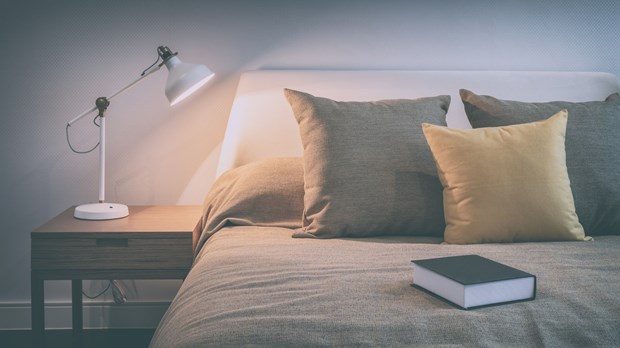Sleep: The Neglected Gift

Diagnosed with rheumatoid arthritis, obesity, high blood pressure, and severe sleep apnea, I changed my diet and began to exercise. In a year, I lost 27 pounds, resulting in a decrease in pain and 2 dress sizes. But I still dragged through each day as if there were a weight on my back.
Being a workaholic mother, wife, grandmother, speech-language pathologist, church planter, college professor, and senior pastor who refused to stop until the task was completed, I have been tired for decades. Tired of being tired, I talked to my doctor. He helped me realize that although I was eating better and exercising, I was neglecting the third pillar of optimum health—sleep.
A Public Health Problem
I found I was not the only one sleepy and tired. The Centers for Disease Control and Prevention has declared insufficient sleep to be a public health problem. The National Sleep Foundation found that “50 to 70 million Americans are affected by chronic sleep disorders and intermittent sleep problems.”The National Highway Traffic Safety Administration reported that drowsy driving causes approximately 1.2 million car crashes each year, killing 8,000 people. Sleep deprivation also contributes to an increase in accidents in industries and hospitals.
Chronic sleep deprivation (five or less hours of sleep a night as a life style) is associated with type 2 diabetes, obesity, heart disease, stroke, cancer, increased colds, and Alzheimer’s disease. Lack of sleep impacts emotional well-being, causing anxiety, depression, flared tempers, and poor decision making.
Being in ministry and working for the Lord does not protect one from the effects of sleep deprivation. Our need for sleep must be respected, no matter our vocation.
There are many reasons why ministers (male or female) lose sleep. Declining church growth, unsupportive staff, balancing ministry and family priorities, criticism, financial challenges, and unreasonable demands of the congregation can keep the pastor up at night.
Women (in general) face additional sleep stealers. The National Sleep Foundation found that women need more sleep than men because they multitask more and use more of their brain. In addition, women’s sleep can be affected by worry, pregnancy, menopause, being woken up and moved around on the bed by the partner, and waking up to tend to children.
In addition to these many reasons that could contribute to sleep deprivation, women in ministry often have to deal with gender bias, which can cause stress, emotional turmoil, and additional work.
Why Did God Give Us Sleep?
All good and perfect gifts come from God. Sleep is good and perfect. When we get the quality and quantity of sleep God ordained, we receive amazing benefits. Our muscles are repaired, growth and appetite hormones are released, memories consolidate, emotions regulate, and our immune systems are strengthened. Sleep helps our body perform the processes needed to self heal.
I hear from God clearer when I get a good night’s sleep. There have been countless times over the years when I woke up in the morning knowing the answer to the seemingly unsolvable problem I had the night before. When I am sleep derived, I receive nothing.
The Bible records God speaking through dreams to Joseph, the wise men, and Pilate’s wife, just to name a few. He is still speaking to mankind through dreams today, but we will have difficulty hearing him if we are sleep deprived.
Good Sleep Practices
I sought the Bible to get God’s thoughts on sleep. He does not want us to overwork, worry, and live sleep deprived (Psalm 127:2), nor does he want us to be sluggards (Proverbs 6:9–10). God wants us to be balanced.
Researching sleep aids, I discovered tranquil soundtracks, soothing meditations, acupuncture, sleeping pills, and CPAP machines. Sleep-tracking devices can be worn or can sit by your bedside. I also follow a sleep regimen I developed to establish a healthy sleep life.
- Go to bed earlier. My to-do list is never completed anyway.
- Turn the television off. Responding to the news delays sleep.
- Petition God for restorative sleep. I desire the quantity and quality that promotes healing.
- Stop drinking caffeine late at night. Caffeine keeps me awake.
- Journal before bedtime. My concerns are left on the page and not on my mind.
- Lower the room temperature. I set the thermostat at 66 degrees.
- Take naps without feeling guilty. I give myself permission to rest midday.
Although I have just recently started following this restorative sleep regimen, I feel better already. I am determined to turn in my membership card to the sleep deprived club and join the restored and refreshed group. I am not going to continue abusing and neglecting sleep. I’m convinced that it’s God’s gift to me.

Dorothy J. Haire, D.Min. is a retired founder and pastor of a non-denominational church outside St. Louis, and a retired speech-language pathologist. She is presently an assignment writer for Sparkman Christian Magazine and is writing a narrative on the Book of James.












